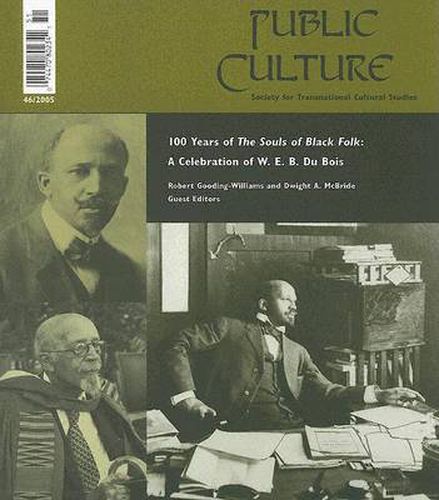Originally published in 1903, The Souls of Black Folk is W. E. B. Du Bois’s biting critique of the racist and nationalist ideologies that animated the political culture of post-Reconstruction, Jim Crow America. This special issue of Public Culture celebrates and considers the influence of Souls during the last one hundred years. Featuring the work of a new generation of Du Bois scholars, it suggests that a full appreciation of Souls requires reading it as both literary art and political theory. This collection relies on the language of literary aesthetics to examine Du Bois’s political agenda and, conversely, on varying accounts of that political agenda to assess his aesthetic choices. It also helps us understand why Souls became a literary and political classic and has played such a decisive role in the formation of twentieth-century African American literature and political thought. The essays explore a variety of topics, including the possibility that Souls was modeled on Richard Wagner’s idea of a total artwork, Du Bois’s thinking about the political significance of homosociality, and the interplay of racialism, nationalism, and globalism in Souls. Contributors. Anne E. Carroll, Vilashini Cooppan, Robert Gooding-Williams, Sheila Lloyd, Dwight A. McBride, Charles I. Nero, Cheryl A. Wall, Alexander G. Weheliye
Read More





